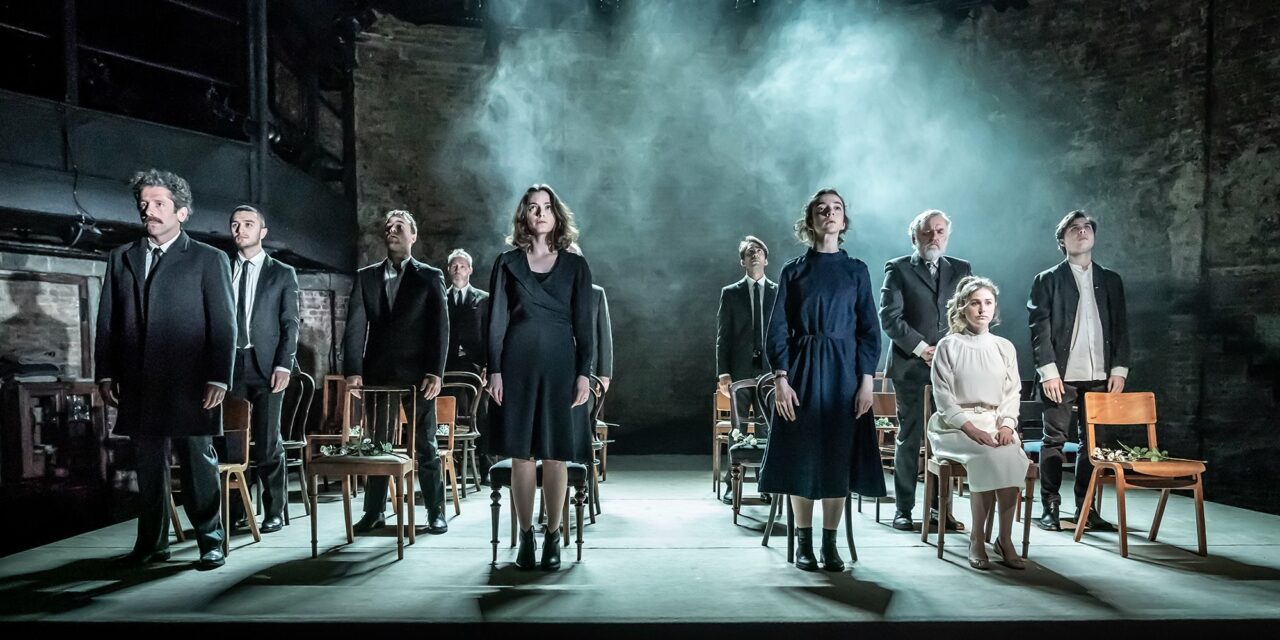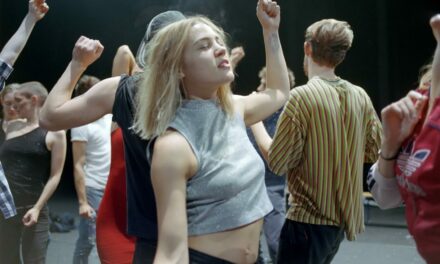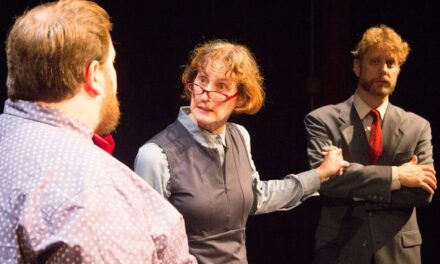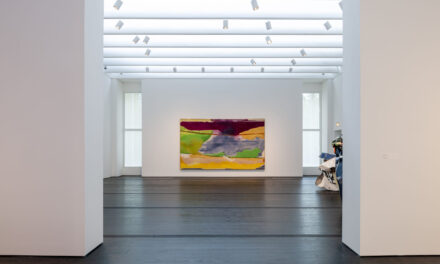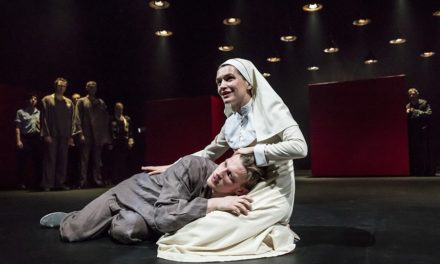“I’m bored, bored, bored.” The refrain, occasionally spoken but frequently felt, is at the heart of Chekhov’s Three Sisters. In the wake of their father’s death, the Sergeyevna sisters feel trapped and doomed to unhappiness in a provincial Russian town, yearning for an idealized return to the Moscow of their childhood. Joined in this restlessness of spirit by their brother and a brigade stationed at their town, the three young women grapple with virtually all the Big Problems of life: unfulfilling marriages, the search for meaning and love, woes of work, loneliness, depression, and—yes—boredom. The list goes on; characters keep on with their suffering and their articulations of it. Not much happens, but also—strangely, beautifully—everything happens, as Chekhov lays bare before us the manifold mysteries, pains, and joys of life in all their haunting and relatable simplicity.
This new “version” by Cordelia Lynn is not so much a critical adaptation of Chekhov’s play (of the sort that the Almeida often favors) as an unrestrained, fresh translation of it, sprinkled with a handful of additional remarks and nonverbal moments. Especially when examined on the page, her script—insofar as it is hers—may even appear to be too loyal to the original. Still, what Lynn does with Chekhov’s already understated language is commendable: There is a noticeable tenderness, as well as an expected colloquialism, that distinguishes her work on the play. Perhaps the greatest sign of her achievement in this regard is that for anyone not overly familiar with the original text, it would be hard to draw a sharp line between what might be hers and what is Chekhov’s. It’s as though she has put the play into a space of her own making and let it breathe and marinate there for a while, keeping its spirit and shape very much intact but invigorating its verbal texture towards a hard-hitting immediacy. Not that Chekhov’s language is in dire need of refreshing, but Lynn’s rendering refracts it through a contemporary parlance that thankfully doesn’t become too jarring. Her authorial hand is mostly absent from our sight, though we know it’s always there, lurking somewhere behind.
As in her recent Summer and Smoke, Rebecca Frecknall’s staging is at once subdued and bold, lyrical and engaging, which is supremely fitting for a play of this nature. In her hands, Chekhov’s landmark realism becomes almost exclusively a matter of characterization and delivery, loosening its hold on scenography. Bits and pieces from what would be a conventional Chekhov production—chairs, lamps, candles—populate Hildegard Bechtler’s minimalist and punchy design, but Frecknall estranges and aestheticizes them to the point of poetry, multiplying their utilities in ways that bolster the production’s choreographic vibrancy. While this reliance on certain props for such atmospheric effect is not always consistent in its logic, it does help the action stand on its own, distancing it from its specific historical setting—one that has a rather spectral presence in this take on the play.
In addition, Frecknall’s visual foregrounding of the brother Andrey’s mounting sense of isolation and entrapment is a most welcome approach to the play’s curious handling of his character in the shadow of his sisters. Chekhov might seem to prioritize the three young women both in the play’s title and in its central story, but Andrey is an integral part of all that goes on and has a tormented psyche not unlike those of his sisters. Through some thoughtful moments of visual composition, Frecknall draws our attention to this component of the play, magnifying its dormant emotional impact.
The titular sisters are played with controlled bravura by Patsy Ferran, Peal Chanda, and Ria Zmitrowicz: Ferran’s Olga wages a private and silent war in her mind against herself and her fate, but with a calm that is always on the cusp of dissolution—indeed, explosion. Chanda’s Masha is perpetually and visibly pained, so much so that even fleeting moments of joy have a hard time leaving an impression on her face. Zmitrowicz’s youthful and sensitive Irina gradually surrenders her optimism to a physically sickening anxiety. Both individually and as a trio, these three actors convey with impressive precision different facets of human suffering, all the while signaling the strength and resilience that they derive from each other’s company. Among the supporting cast, Elliot Levey (as Masha’s husband, Fyodor Ilyich Kulygin) strikes a resonant balance between the self-consciously comic and the silently despairing, and Peter McDonald (as the lieutenant colonel Alexander Ignatevich Vershinin) is both soulful and steadfast in his convictions. Alan Williams, too, gives a delightful performance as the jaded sage Ivan Romanovich Chebutykin. Truly, the entire company works like a well-oiled machine with a big, human heart.
Jack Knowles’ elegantly modulating lights and George Dennis’ sound design, which is both animated and mellow, have a big part to play in what makes this Three Sisters so tonally rich. This is a production that knows well when to make concrete the play’s divergent sensibilities and when to let them percolate in the air, in silence and with grace. The unfaltering combination of commanding performances and searing tableaus situates us in a world where despair and hope are inextricably linked to each other—a painfully recognizable world where, even if life’s greatest puzzles may never be solved, they can at least be fiercely wrestled with and turned into great art.
This post was written by the author in their personal capacity.The opinions expressed in this article are the author’s own and do not reflect the view of The Theatre Times, their staff or collaborators.
This post was written by Mert Dilek.
The views expressed here belong to the author and do not necessarily reflect our views and opinions.

